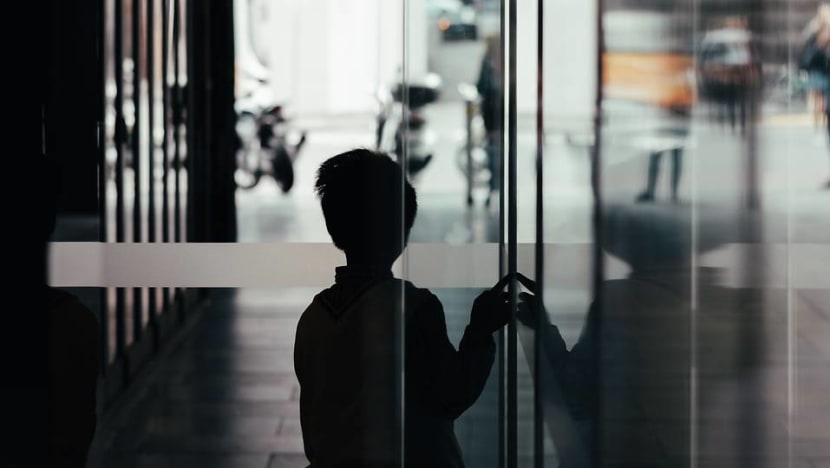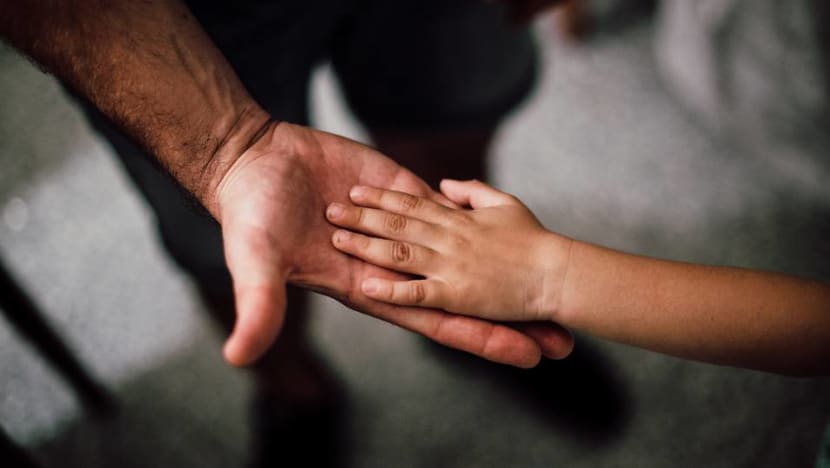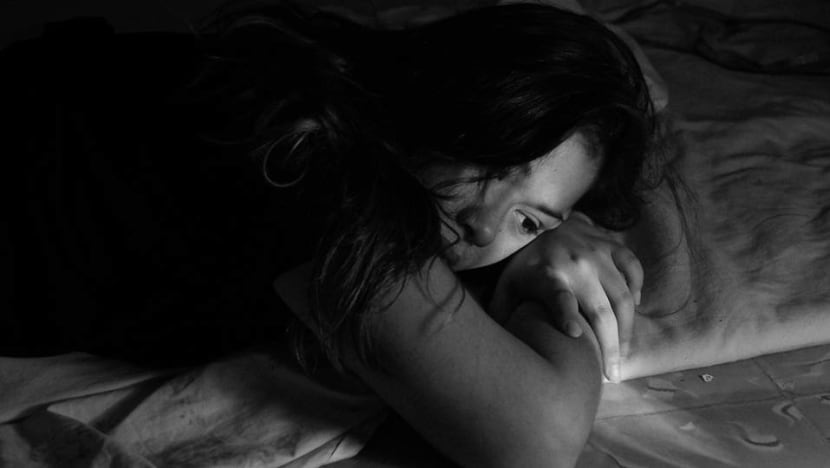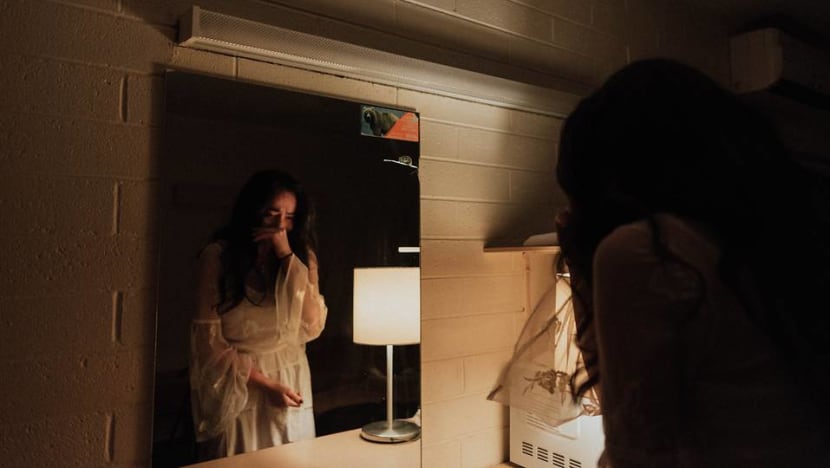commentary Commentary
Commentary: ‘They don’t deserve to take so much away from me’ – how survivors of child sexual abuse find hope, recovery
We need to break down the barriers that hinder victims from revealing their abuses, says AWARE’s Laika Jumabhoy.

(Photo: Unsplash/David Clarke)
SINGAPORE: Recently, a Singapore-based Australian man was charged with 59 counts of child sexual abuse and producing pornographic material for more than 10 years. Five affected children were in Singapore. No police reports had been lodged against the man, the Singapore Police Force clarified on Friday (May 24).
READ: 'Jailbait' folder exposes Australian paedophile’s sex abuse of children in Singapore 17 years ago
The silence of these children echoes those of sexual violence survivors of all kinds.
At AWARE’s Sexual Assault Care Centre (SACC), survivors are not obliged to inform us whether they report their experiences or not - but of the cases known to us in 2018, only four in 10 lodged a police report.
Such tragedies, when they come to light, compel us to try harder to prevent child sexual crimes - a task that involves concerted effort on many fronts, such as comprehensive sexuality education.
But we also need to break down the barriers that hinder children from disclosing their experiences to their own family and friends. After all, without speaking up, child sexual abuse survivors cannot begin the long journey of recovery.
WHY DON’T CHILD ABUSE SURVIVORS SPEAK UP?
Tina*, now in her 30s, was a victim I saw at the centre some years ago. She was sexually abused many times by her sister’s husband and two family friends (whom she called “uncles”) for six years, starting before she turned seven.
In her recollection of the case, Tina recalled that “something bad” would happen at least once a week when her mother was at work and the perpetrators were tasked to look after her. The abuse she suffered included molest, digital penetration and rape.
Once, her mother saw her lifting up her dress while sitting on the family friend’s torso, something he had asked her to do a few times while she was a victim. Her mother slapped her and scolded her.

Tina shared that her mother’s reaction cemented her fear of not being believed about what she was going through. It suggested to her that she was at fault for her actions.
Feeling “tainted and dirty”, she began to blame herself, believing that she had invited the abuse by being “too friendly”. In school she acted out in trying to regain control over her life, playing truant and talking back to teachers, and gained a reputation as a “difficult child”.
Tina kept her abuse a secret until she met her husband a few years ago. Her husband’s believing, affirming and non-judgmental response encouraged her to seek professional help from SACC.
Shame, self-blame, betrayal, the fear of not being believed - or, if you are believed, being punished or held responsible for destabilising your family unit: These are common emotions for survivors of child sexual abuse.
Compounded with the practical or financial hold that perpetrators often have over children, they present a multitude of reasons why many victims, like Tina, carry their secrets with them well into adulthood.
SEXUAL GROOMING
On top of that, pedophiles confuse their victims through a deliberate process of sexual grooming.
A perpetrator begins by establishing a relationship of trust with the child and sometimes the child’s family, positioning himself as a source of support.

He becomes close by paying special attention to a child, buying gifts or playing “hugging” and “tickling” games, making them feel loved and safe.
At some point, he starts to blur the lines between care, love and sex to escalate his actions. He may begin to show his private parts, or induce a child to show his or hers.
Doing this over a period of time normalises the abuse and allows for the crime to increase in intensity. A perpetrator may also deliberately manipulate a child’s state of confusion and innocence by suggesting that he or she had agreed to the acts.
WHEN DISCLOSURE IS THWARTED
Many child sexual abuse survivors I have met had attempted to disclose the abuse to a trusted adult, starting with a “smaller incident” to test the adult’s reaction. But when reactions were dismissive or judgmental, victims ceased further disclosure altogether and clammed up.
Another survivor Sally*, who as a child was molested by her private tutor weekly for more than three years, remembers telling her teacher that her tutor had touched the area around her breasts.
Instead of responding with care and caution, the teacher questioned whether Sally was telling the truth and suggested that the contact might have been accidental.
This pushed Sally into silence. She eventually convinced her parents that she didn't need any more tuition and could study with a friend. Only in her early 20s did she reveal what she endured to her two close friends.
Commonly held myths that trivialise sexual violence (such as “If the victim didn’t say anything, it must not have been that bad”) or victim-blame (“If the victim kept going back to the situation, he or she must have wanted it”) build an intimidating wall around the survivor that further discourages him or her from seeking help.

For example, they may feel they do not have the right to report because the abuse happened “only once”, or because it was non-penetrative - but abuse surely does not have cross that definitive physical line to have long-lasting psychological impact.
Also dangerous are attitudes that catastrophise sexual violence - e.g. “victims will never recover” or “victims will become perpetrators themselves”. Statements that confer stigma and shame can also push survivors into deeper silence, deterring them from seeking support or justice.
THE IMPORTANCE OF FIRST RESPONSE
A supportive, non-judgmental first response is pivotal in encouraging survivors to break their silence. If a child speaks up, listen and believe them. If you notice behavioural changes in a child, gently investigate.
READ: When children say they’ve been sexually abused, believe them, a commentary
Tina’s mother, for example, instead of chiding her daughter when she lifted up her dress with an adult, might have taken the child aside and asked if everything was okay.
When we see sexualised behaviour in children, we should seek to understand where it comes from instead of shutting the child down. Though first instincts might be to scold, with an educative intent, a more helpful, open approach to assure the child that sharing is welcome can make the sum difference.
Despite negative first responses from adults, what propelled Tina and Sally to eventually seek help was support from loved ones and friends. Both of them told us that it was incredibly powerful to be able to tell their stories uninterrupted, to be called “courageous and brave”, and to be assured of support through their difficult recovery journey.
ENABLING RECOVERY
A traumatic incident causes a rupture in our personal narrative. It can taint relatively positive, healthy and stable relationships because of negative and unhealthy emotions.

Recovery centres on increasing a survivor’s sense of safety, confidence and self-efficacy. Several key factors that can contribute to this:
- Taking decisive action - for example, entering therapy, forgiving the perpetrator, pursuing justice (e.g. with a police report), volunteering or helping others.
- Creating a constructive narrative - naming the abuse, understanding trauma’s impact and symptoms, moving away from assuming all blame.
- Cultivating resilience - being willing to work through trauma and not be defined by an incident.
- Building support systems - nurturing supportive, caring and safe relationships with family members, partners and friends.
Tina came to SACC hesitantly, feeling unworthy of love.
“So many things didn’t make sense,” she said.
I couldn’t understand, and still can’t fully come to terms with, how these people - who were supposed to look after me - did things to me.
Eventually, she saw value in her counselling sessions and in working towards recovery.
“My case manager really listened to me. She never judged me. She always reminded that it was not my fault. She let me take things at my own pace and didn’t give up on even when I got angry with her."
I needed to do this so that I can live a happy life with my husband. [The perpetrators] don’t deserve to take so much away from me.
Laika Jumabhoy is Assistant Manager at AWARE’s Sexual Assault Care Centre.














